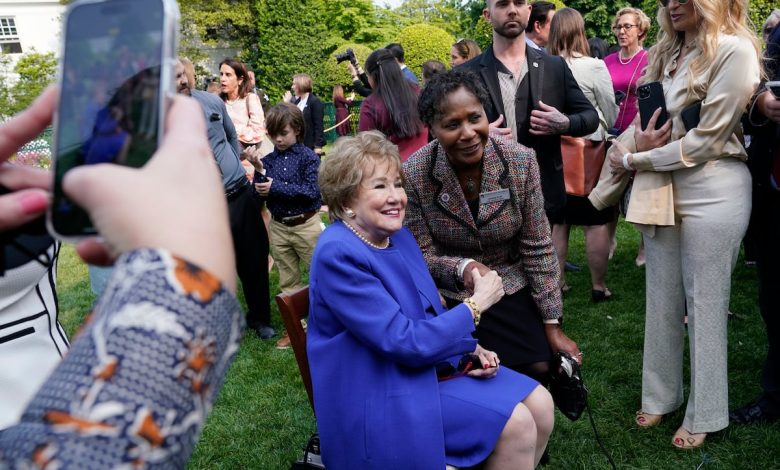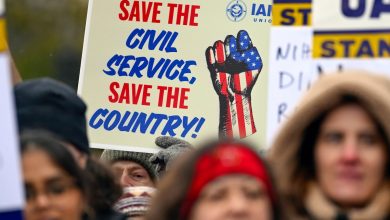Congress finalizes sweeping bill to help veteran caregivers

House lawmakers on Monday finalized a sweeping veterans bill to expand caregiver benefits for elderly and infirm veterans and update medical options for veterans outside the department’s health care system, sending the legislative package to the White House to become law.
The legislation was originally passed by the chamber last month but had to be reapproved this week after technical changes were added by the Senate last week. The measure now heads to the White House, where President Joe Biden is expected to sign it into law in the coming days.
Advocates have lobbied for months for passage of the bill, expected to cost roughly $1 billion over the next decade. They’ve argued the reforms are needed to catch up with the care demands placed on veterans’ caregivers, who save taxpayers tens of millions of dollars annually with their around-the-clock personal medical care.
“We have spent almost two years working tirelessly with our coalition partners to ensure a better future for our veterans, caregivers, survivors, and their families,” said Elizabeth Dole Foundation CEO Steve Schwab in a statement after passage.
“Through this life-changing and lifesaving legislation, we are one step closer to our vision of an America where veterans and their families thrive.”
RELATED
The measure — its full title is the Senator Elizabeth Dole 21st Century Veterans Healthcare and Benefits Improvement Act — features significant improvements to current caregiver support programs within the Department of Veterans Affairs.
It would expand access to home-based and community-based services at every VA medical center. Supporters have said that will allow tens of thousands more veterans to receive medical care at home rather than in nursing home institutions, if they choose to do so.
The bill would increase the cap for in-home care programs from 65% of nursing home costs to 100%, potentially providing thousands of dollars more a month to eligible families. In some cases, that figure could go even higher, if VA officials decide that at-home care is “in the best interest of the veterans.”
The legislation would also create a mental health care grant program for family caregivers in the VA’s current program. And the bill closes a loophole to stop veterans from losing their burial benefits if they choose to die in hospice care rather than a VA facility.
“I’m excited to see the impact to our veterans that these policy improvements will have, including expanding access to home and community based services throughout every VA Center, allowing older and sick veterans to receive care where they fit and where they need it,” Rep. Juan Ciscomani, R-Ariz. and a member of the House Veterans’ Affairs Committee, said shortly before the vote. “This comprehensive bill does so much.”
Other reforms
The package also includes several provisions related to community care, the program through which veterans can use taxpayer funding to schedule medical appointments at private-sector clinics. About 40% of all VA medical appointments are currently handled through the community care program.
The legislation would prohibit VA officials from overriding medical decisions made by those outside physicians, giving more autonomy to non-VA doctors in veterans overall health care planning.
It would also require new outreach by VA to veterans about their community care options and require department officials to look into potential reimbursement rate increases for those types of appointments.
Senate Veterans’ Affairs Committee ranking member Jerry Moran, R-Kansas, said in a statement last week that those moves will help “protect the rights of veterans and their doctors to determine what is in a veteran’s best medical interest, without interference from VA bureaucrats.”
On veteran education benefits, the measure allows surviving spouses to maintain eligibility to use certain GI Bill programs upon remarriage.
The Dole Act also includes provisions to boost supportive housing grants in an effort to provide more funding to charities providing shelter for homeless veterans. And it mandates a closer look at VA dental care options, with a pilot program to gauge the feasibility of expanding dental coverage to more veterans.
To pay for the package, lawmakers would extend the VA home loan funding fees for three years, at a cost of about $5 per loan. That extra expense would not apply to veterans with a service-connected disability.
White House officials have not indicated when Biden will sign the legislation, but have also offered no opposition to the package.
Leo covers Congress, Veterans Affairs and the White House for Military Times. He has covered Washington, D.C. since 2004, focusing on military personnel and veterans policies. His work has earned numerous honors, including a 2009 Polk award, a 2010 National Headliner Award, the IAVA Leadership in Journalism award and the VFW News Media award.
Read the full article here







